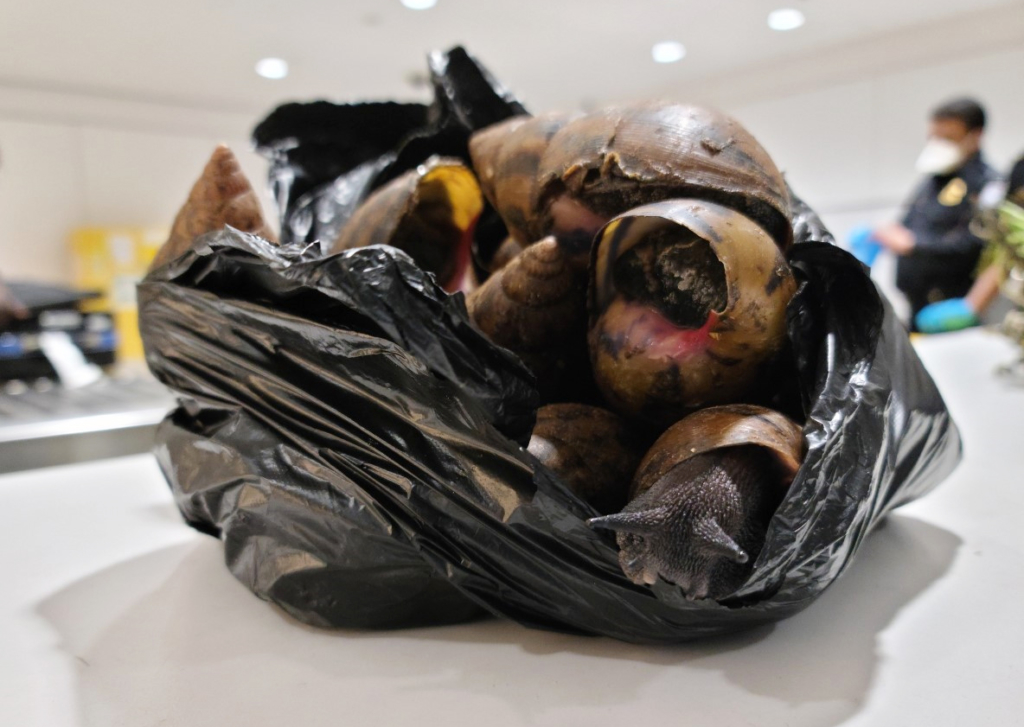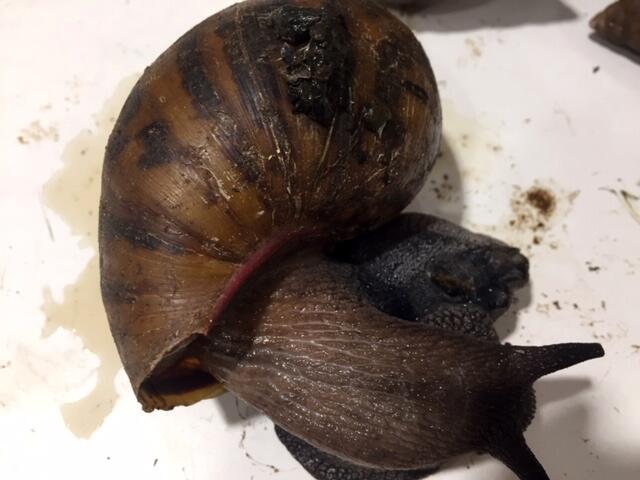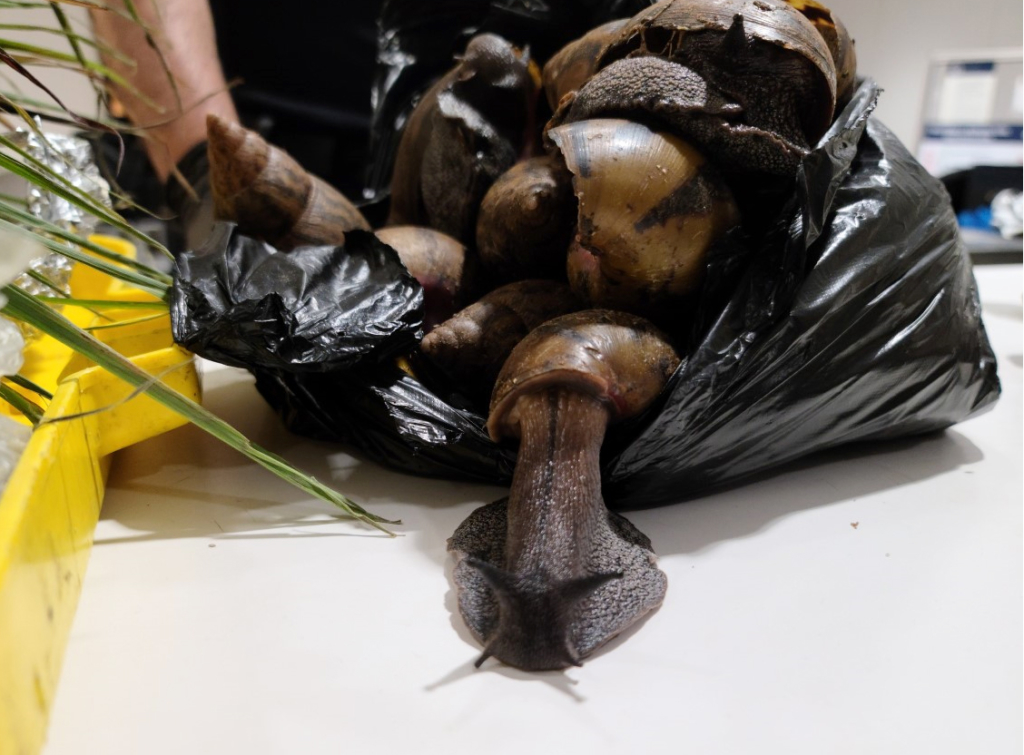The US Customs and Border Protection (CBP) Saturday seized snails from the baggage of an American who arrived from Ghana at the John F. Kennedy International Airport.
Apart from the 22 highly invasive Giant Ghana African Snails, CBP agriculture specialists also found about 24 pounds collectively of prohibited oxtail, dried beef, turkey berry and carrot.

There was also medicinal leaves and prekese aka soup perfume, a traditional spice and medicinal product.
In a statement, Marty C. Raybon, Acting Director of Field Operations for CBP’s New York Field Office said the giant African land snail is one of the most damaging snails in the world because it consumes at least 500 types of plants.
The U.S. Department of Agriculture (USDA) said the snails are also a menace to their agric resources.
It noted that the Giant Ghana African Snails further causes extensive damage to tropical and sub-tropical environments.

This snail species has been considered a significant cause of pest issues around the world. Internationally, it is the most frequently occurring invasive species of snail.
Outside of its native range, this snail thrives in many types of habitat in areas with mild climates. It feeds voraciously and is a vector for plant pathogens, causing severe damage to agricultural crops and native plants.
It competes with native snail taxa, is a nuisance pest of urban areas, and spreads human disease. This snail is listed as one of the top 100 invasive species in the world. The snails reproduce quickly, producing about 1,200 eggs in a single year.
The statement added, "highly invasive Giant Ghana African Snails also poses a serious health risk to humans because it carries a parasitic nematode that can lead to meningitis".

“Customs and Border Protection agriculture specialists are our nation’s frontline defenders against invasive plant and animal pests that threaten our agricultural resources, and they face this complex and challenging mission with extraordinary commitment and vigilance,” said Marty C. Raybon.
The Giant Ghana African Snails was first found in southern Florida in the 1960s and it took 10 years and $1 million to eradicate it. It was reintroduced in Miami in September 2011.
The USDA Animal and Plant Health Inspection Service, in partnership with the Florida Department of Agriculture and Consumer Services, is conducting a regulatory program to eradicate this invasive species.
Latest Stories
-
EC calls for stakeholders’ support to complete electoral processes
20 minutes -
Ghana Shippers Authority addresses Tema port delays, assures of efforts to resolve challenges
28 minutes -
Ensign Global College recieves Presidential Charter
43 minutes -
CODEO expands post-election observation to monitor parliamentary disputes
1 hour -
Ablekuma North, Dome Kwabenya will have MPs-elect before January 7 – EC
2 hours -
Bills Micro-Credit climax year with durbar and dinner celebration
2 hours -
Lawyer sues Wesley Girls SHS for alleged religious discrimination
3 hours -
Election: We’re not the first EC to re-collate results – Bossman Asare
3 hours -
Kofi Kinaata makes historic comeback with ‘Made in Taadi’ concert
3 hours -
It is unacceptable; EC is becoming a lawless institution – NDC on re-collation justification
3 hours -
24-hour economy in the era of digital currency adoption: Implications on economy in 2025 and beyond
3 hours -
Okaikwei Central Constituency were electoral officials cajoled into declaring wrong person – Asare Bossman
3 hours -
US donates $220k mobile heath clinic van to facilitate medical outreach for Ghanaians
3 hours -
Dining with the Gods… Hands off the Big Chair
4 hours -
Joy FM’s Party in the Park: A day of family fun awaits in Aburi
4 hours

